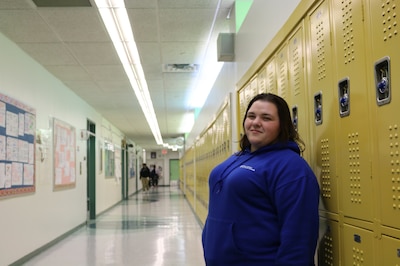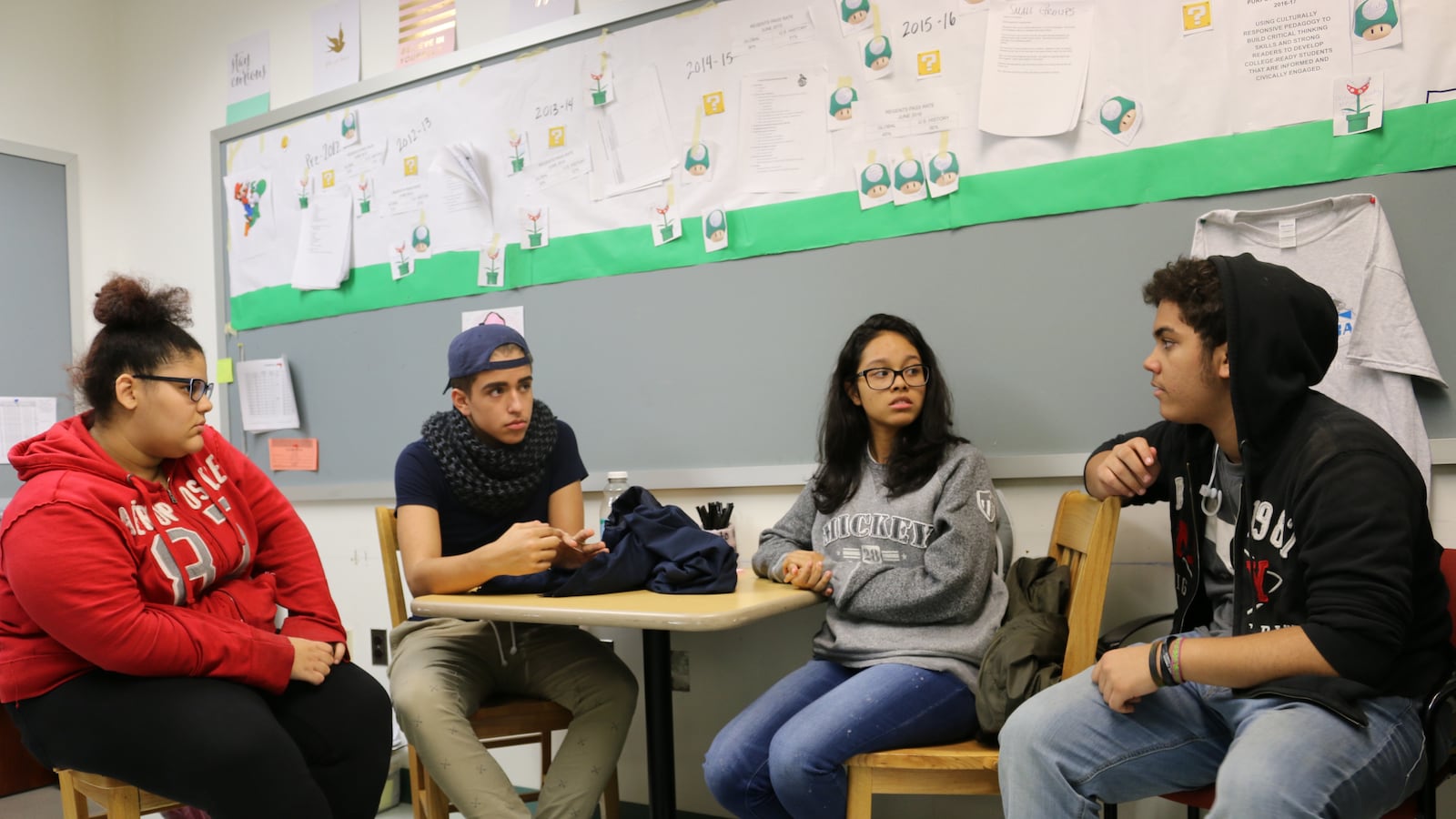When Sarah Scrogin, principal of East Bronx Academy for the Future, woke up Wednesday morning to a stunning election result and questions from her staff about how to talk about it with students, she had to make a quick decision.
In a school where roughly 70 percent of the student body is Hispanic, and many have friends or relatives who could face the consequences of President-elect Donald Trump’s harsh stance on immigration, should teachers simply carry on with the day’s normal activities? Would it be appropriate for teachers to make their own political views known as a way of comforting students — or themselves?
Just after 8 a.m., Scrogin dashed off an email to the entire faculty, encouraging them to use the election as the ultimate teachable moment. “Our job as educators is not to tell others what to think,” she wrote, “but rather, to work together with young people to develop their own critical thinking.”
In Christine Montera’s AP U.S. History classroom, where the walls are adorned with Time magazine covers, that meant the usual rows of desks were molded into a circle where students spent the hour-long class period processing the news.
“A few of us had a conversation this morning: How can we go into our classrooms and say that someone who behaves in a manner that incites violence and hate on some occasions is the next president?” Montera said. “I was really going into it wanting the students to drive the discussion.”

As she asked her students about their reactions to the news, it was clear the election set off a wave of fear over the immigration status of friends and family, persecution of LGBT people, and the status of police reform.
“I truly believe that white privilege is a thing that has been in play for hundreds of years, even thousands,” noted sophomore Justin Vargas, who said he worries the police may become less restrained against people of color as a result. Trump “wants to make America great again for a certain kind of people. It’s racist people.”
Another student, Carla Borbon, expressed concern for LGBT people, whose reaction she’d seen on social media and on the news. “There were a whole bunch of people scared because of their sexuality because this man is homophobic,” she said. “A lot of people were wondering what is going to happen to them.”
Others were less worried about the election result. “I was annoyed about things people were saying about Donald Trump, saying that he’s a rapist and wanted to deport everyone — that’s not true,” said junior Hugo Rodriguez. “I actually don’t mind Trump as president.”
Still, the school’s assistant principal, Nick Lawrence, said many students were visibly distraught as they filtered into school Wednesday morning and throughout the day. He said parents’ concern over immigration policy “will certainly be on our minds,” but that it was too early to predict exactly how that might play out in the wider school community.
“We have a large immigrant population,” he said. “Our focus is making sure they feel supported and protected and okay with being in the building.”

